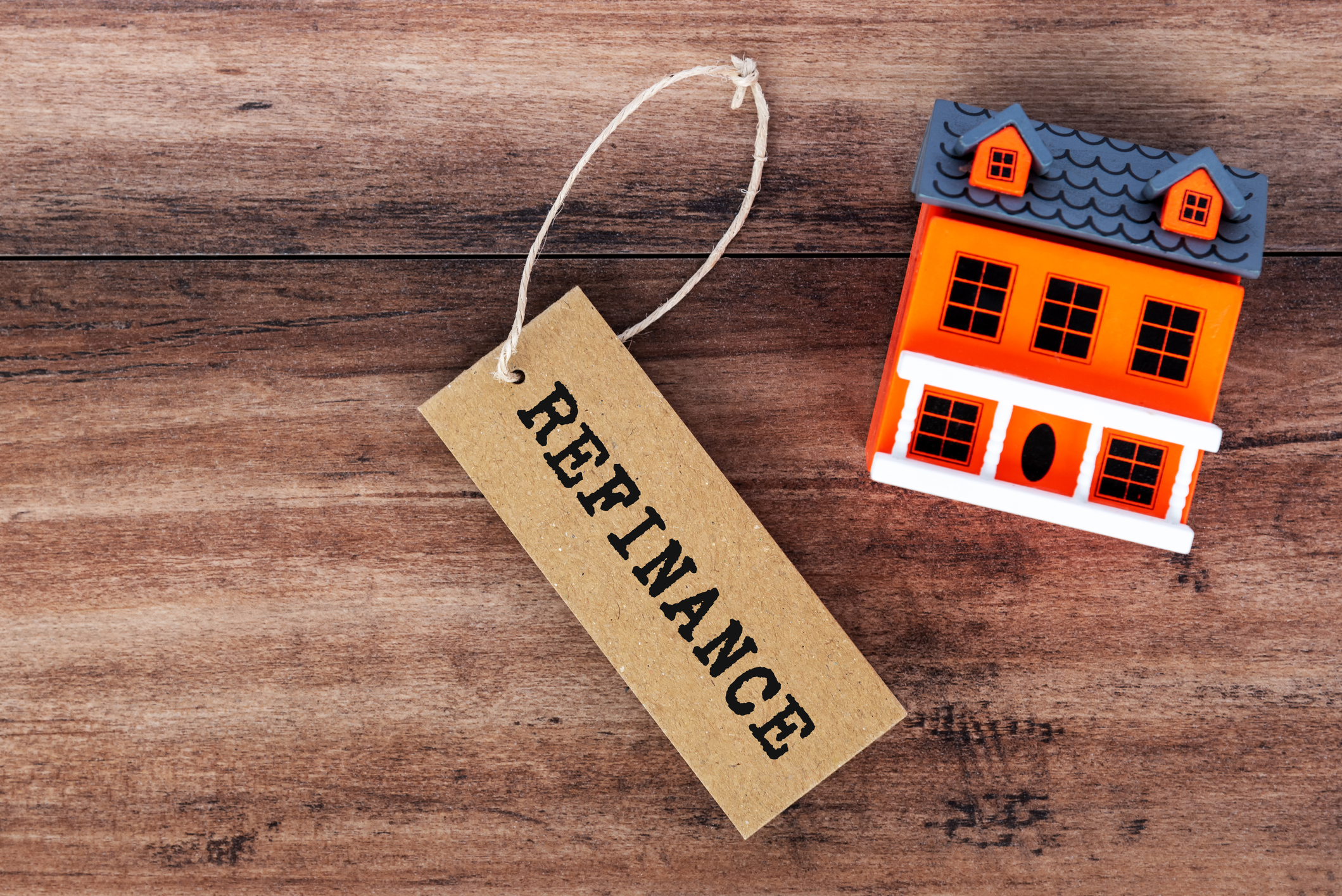A mortgage refinance can provide various advantages, like reducing monthly payments, shortening a loan term, switching to a fixed-rate mortgage, or accessing cash for home renovations or other expenses.
These benefits have become particularly attractive to homeowners recently as anticipation surrounding the interest rate cut by the Federal Reserve in September drove down mortgage rates. And that led to a surge of refinancing applications and the strongest week of borrower demand in decades, according to the Mortgage Bankers Association (MBA).
“Homeowners with larger loans jumped first,” said Mike Fratantoni, MBA’s SVP and Chief Economist, regarding their weekly survey of mortgage applications for the week ending Sept. 12 . “The average loan size on refinances reached its highest level in the 35-year history of our survey.”
Sign up for Kiplinger’s Free Newsletters
Profit and prosper with the best of expert advice on investing, taxes, retirement, personal finance and more – straight to your e-mail.
Profit and prosper with the best of expert advice – straight to your e-mail.
But as mortgage rates slide, homeowners considering a refinance should be aware of associated tax implications to maximize any potential benefits. Here’s more to know.
Are cash-out refinances considered taxable income?
The best part of a cash-out refi is that you won’t owe income taxes on the cash received. That’s because you are borrowing against your home’s equity, and the IRS expects that you’ll pay those funds back to the bank.
Additionally, money received from a home equity line of credit (HELOC) or home equity loan is also tax-free.
Aside from being tax-free money in your pocket, a cash-out refinance could provide other tax advantages. Let’s dive in.
Permanent cap on mortgage interest deduction
One of the most popular tax breaks some homeowners claim is a mortgage interest deduction when refinancing their home loan. However, you’ll need to itemize using a Schedule A of Form 1040 to claim this deduction.
There’s also a limit on the amount you can deduct on mortgage interest. President Donald Trump’s recently enacted tax cuts and spending legislation, dubbed the ‘big beautiful bill,’ makes that cap permanent for refinanced and original home loans. But there are income limits.
For 2025 and onward, you can deduct mortgage interest on the first:
- $750,000 if single or filing jointly
- $375,000 if married filing separately
For a deeper dive into how Trump’s megabill reshapes tax breaks for homeowners, see our related story: New Trump Tax Bill: Five Changes Homeowners Need to Know Now.
Tax-deductible home improvements for a cash-out refi
There are also other cash-out refinance tax rules that impact what you can claim as a tax deduction.
For instance, proceeds from the cash-out refi used to fund capital home improvements may qualify for a deduction. Capital improvements are permanent residential upgrades to enhance your property, outlined in IRS Publication 523.
If you’re a retiree in search of home improvement tax breaks, or have a family member who needs certain renovations done to make your home accessible. Some remodeling projects may also qualify for a medical expense deduction that you must itemize.
Some popular tax-deductible home improvements may include:
- Adding a swimming pool
- Implementing a new bedroom, office, or bathroom
- Installing home security systems
As a note, some tax breaks are expiring this year due to Trump’s new tax law. For example, clean energy tax credits for home improvements are being eliminated sooner rather than later. That includes tax incentives some homeowners could claim for installing energy-efficient home improvements like solar panels.
Tax breaks for buying down your rate

When closing a home loan, you can buy down your rate via discount points. These are tax-deductible, but there are certain rules you must follow if you refinance.
(Image credit: Getty Images)
When you’re about to close on a mortgage refi, you have the option to buy down your rate via discount points.
Points paid during a traditional or cash-out refinance aren’t deductible in full the year you pay them. Some exceptions may allow you to deduct points fully in the year paid, like if you use part of the refinanced proceeds to substantially improve your main home.
However, discount points paid during a mortgage refi are generally deducted over the life of the loan, so you’ll have to plan accordingly.
So, what are mortgage points?
- Points are prepaid interest, which you pay upfront to lower the interest rate on your mortgage.
- One point equals 1% of the loan amount. That means that paying 1 point on a $300,000 mortgage would cost you $3,000, and could reduce your rate by about 0.25%.
To deduct mortgage points, you must meet all IRS requirements, and they should be included as an itemized deduction claimed on IRS Form 1040, Schedule A.
Rental property tax deduction
Here’s some good news: You can also claim tax deductions when refinancing a rental property, but they are generally amortized across your refinance loan term.
The rules are slightly different. For instance, when refinancing a primary residence, you can only deduct qualified points and interest, as well as certain renovations.
By contrast, refinancing a rental property also allows you to also deduct closing costs associated with obtaining a new mortgage, like loan origination fees. Other tax-deductible costs may include:
- Application fee: These are processing fees when applying for a refinance, and may include credit report fees as well.
- Appraisal costs: An appraisal for a rental property includes an analysis of potential rental income in your designated area.
- Discount points: As mentioned, these are points purchased to buy down the rate on your mortgage.
- Mortgage insurance premiums: A mortgage insurance premium can generally be deducted as a business expense in full the year they are paid.
Ensure you consult with a tax professional to determine what may qualify as a tax break when refinancing your rental property.
When to consider refinancing your mortgage

Refinancing your mortgage can be beneficial under certain circumstances, like reducing your rate, changing your loan term, or freeing up cash to fund expenses like a home renovation.
(Image credit: Getty Images/iStockphoto)
More than 81% of homeowners have a mortgage rate below 6%, according to data from Realtor.com. That’s at least 4 in 5 U.S. homeowners with outstanding mortgages, who may not be interested in refinancing at today’s rates.
However, refinancing a mortgage may be worth considering if interest rates have fallen considerably below the current loan rate. Some folks may also be interested in a refinance if they want to change their mortgage loan term, switch to a fixed-rate loan, or want to pull cash from their home equity to fund certain expenses.
All of these reasons may sway homeowners to refinance their mortgage, especially as market rates are on a downward trend.
Before refinancing your home loan, keep track of potential tax benefits you may claim, which are generally through itemized deductions. As mentioned, some may include deductions for qualifying home improvements or closing costs of the loan.
To get the best outcome, consult a trusted tax advisor who can guide you regarding potential tax breaks associated with home refinancing.

